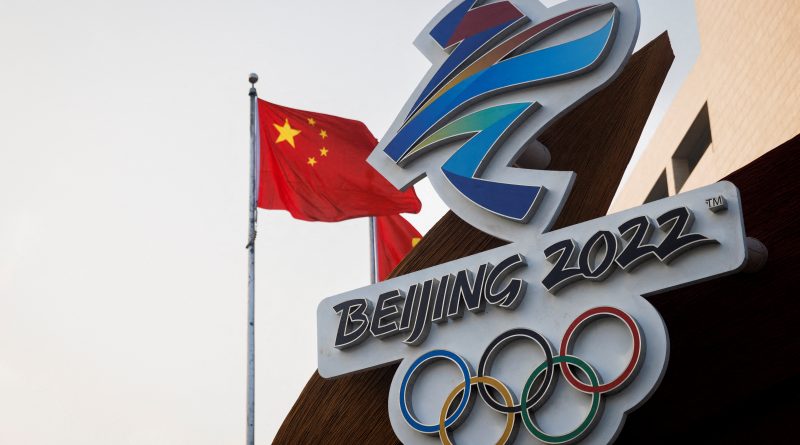The Controversy Around Beijing 2022 Olympics Explained
Various countries are boycotting the Beijing 2022 Winter Olympics due to reports of human rights violations against the Peoples Republic of China.
Key Actors:
- Beijing government
- Uyghur population
Background Information
The Winter Olympics are hosted every four years for the top global athletes. This year, they are being hosted in Beijing, China. However, some countries have declared a boycott on the Olympics this year.
The Uyghurs are an ethnic minority predominantly in the Xinjiang region of the People’s Republic of China. The majority of these people are Muslim, with Turkic roots. There are 12 million Uyghurs living in China, based on official records from the Chinese government.
The Human Rights Violation
Behind this is a human rights issue: China has detained a large portion of their Uyghur population in “re-education camps.” At least one million people have been detained. This issue emerged in mid-2018 and has been steadily gaining attention. The goal of these camps are to indoctrinate the Uyghur population into mainstream Chinese politics and culture by banning practices of their culture and forcing them to do things that are prohibited in their culture, such as eating pork. There are also reported accounts of unpaid labour. These camps have been accused of abusing the Uyghur residents and described as cultural genocide and crimes against humanity by the U.S. and international human rights organisations.
Life in Xinjiang has been described as a “dystopian hellscape” by Amnesty International, an international human rights organisation. There is constant surveillance of the Uyghur population, predicting and controlling all their actions, according to Human Rights Watch. The Chinese government aims to erase the Uyghur Muslim culture and assimilate them into mainstream China, creating a homogenously Chinese nation.
China has denied all accusations of genocide and abuse, calling it “tackling extremism”, while helping minorities contribute to society and the economy.
Countries Boycotting the Olympics
Due to the reports of violation against human rights by the People’s Republic of China, some countries have decided to boycott the 2022 Beijing winter games. This means their top officials will not be attending, though athletes are still allowed to compete. Countries diplomatically boycotting the Olympics this year are Canada, U.S., UK, Australia, Lithuania, and Kosovo. Japan has also declared they will not send any ministers or officials, though they have not called it a “diplomatic boycott.” The Biden Administration said their boycott was due to the “human rights abuses and atrocities in Xinjiang” against the Uyghur Muslim population. White House press secretary Jen Psaki said they did not want to do Beijing the favor of “contributing to the fanfare of the Games.” British MP Iain Duncan Smith said “the Chinese government commits industrial-scale human rights abuses in the Uyghur Region, Tibet and sends near-daily military incursions into Taiwan’s airspace. We cannot lend any legitimacy to China’s despotic regime.” Human rights activists around the world have also protested the Beijing Winter Games. On the other hand, France is against the boycott. As President Macron said, “I don’t think we should politicise these topics, especially if it is to take steps that are insignificant and symbolic.” He elaborated by saying, “To be clear: You either have a complete boycott, and not send athletes, or you try to change things with useful actions,” adding that he was, “in favour of action[s] that [have] a useful outcome.”
Other countries who are not participating due to the pandemic include New Zealand and Austria. Germany and Spain have not yet taken a stance in this matter.
Although these countries have declared a diplomatic boycott on the Beijing Games, meaning not high-ranking government officials will attend, they are still sending their top athletes. The US boycott explicitly stated they are not stopping their top athletes from participating and destroying their Olympic dreams. Extending the boycott to top athletes would effectively and unfairly penalise them for the human rights abuses in Xinjiang.
China’s Response
China has responded to these boycotts by warning the most vocal protestors—the U.S. and Germany—not to interfere with their affairs with Hong Kong. Focusing on the U.S., China’s Foreign Ministry accused the U.S. of violating “the Olympic spirit,” and that they “will pay a price for its erroneous actions.” They continue to deny all allegations of human rights abuses. They accuse the U.S. of “needlessly politicising sports.” China’s Foreign Ministry Spokesperson Zhao Lijian said the boycotts, “seriously violates the principle of political neutrality of sports established by the Olympic Charter and runs counter to the Olympic motto ‘more united.” However, China has also previously ignored the Olympic mandate to keep politics out of sports. They boycotted the Summer Olympics from 1952-1980 over questions of Taiwan’s participation. In 2019, they sanctioned the NBA Houston Rockets after a tweet by their manager supporting the Hong Kong protests. The case of Peng Shuai, a Chinese tennis star who went missing after sexual abuse allegations against a high-ranking official of the PRC, remains unaddressed as well. Even as China denies all allegations of human rights abuses, other countries continue to attempt to advocate for human rights in China, on behalf of their silenced population.
Regencia, Ted. What You Should Know about China’s Minority Uighurs. https://www.aljazeera.com/news/2021/7/8/uighurs-timeline. Accessed 21 Jan. 2022.
“These Brands Are Still Linked to Uyghur Forced Labor. Help Stop Them Now.” Save Uighur, 15 Apr. 2021, https://www.saveuighur.org/these-brands-are-still-linked-to-uyghur-forced-labor-help-stop-them-now/. Accessed 21 Jan. 2022.
“Beijing Winter Olympics: Why Are They Controversial?” BBC News, 20 Jan. 2022. bbc.com, https://www.bbc.com/news/explainers-59644043. Accessed 21 Jan. 2022.
“Who’s Boycotting the Winter Olympics?” POLITICO, 20 Jan. 2022, https://www.politico.eu/article/boycott-winter-olympics-beijing-2022/. Accessed 21 Jan. 2022.
The Biden Boycott of the 2022 Beijing Winter Olympics. https://www.csis.org/analysis/biden-boycott-2022-beijing-winter-olympics. Accessed 21 Jan. 2022.
“France Will Not Join ‘Insignificant’ Boycott of Beijing Olympics, Says Macron.” France 24, 9 Dec. 2021, https://www.france24.com/en/europe/20211209-france-will-not-join-boycott-of-beijing-olympics-seeking-common-eu-stance.
CityNews. https://edmonton.citynews.ca/2021/12/08/trudeau-diplomatic-boycott-beijing-olympics/#:~:text=There%20has%20been%20no%20indication%20from%20Chinese%20officials,united%2C%E2%80%99%E2%80%9D%20said%20China%20Foreign%20Ministry%20spokesperson%20Zhao%20Lijian. Accessed 2 Feb. 2022.
https://cloudfront-us-east-2.images.arcpublishing.com/reuters/BRQ4TLZKRRIDHKVPPROUBCQWNI.jpg

